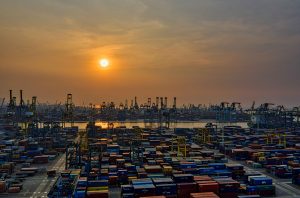Best project logistics company in CA

Supply chain management
If you’re managing a team of people who are handling multiple projects concurrently, then you know how time-consuming and complicated managing them can be. Project logistics management is often seen as a subset of overall supply chain management. Think of the discipline of project management as briefly touching on construction, from materials to services, as long as the construction crew needs these materials when needed: supplies and materials have to be on hand when project logistics construction crew.
Short-term shipments
This is one way in which project logistics can help. By streamlining and automating the process of delivering various materials, one can free up valuable resources for more pressing issues. One instance where this can be particularly useful is when your company is working with a single supplier for one-off or short-term shipments.
Standard project logistics management
The standard project logistics management approach involves tracking all the orders, materials purchases, and shipments that are made within a single physical location. From there, you can then extrapolate the location of the supplies, materials, and shipments when it comes time to deliver the cargo. However, what if your construction site is under construction or at the point of entering it, or perhaps there’s a disaster or two on the horizon? Is there then a need for your company to consider alternative ways of tracking and delivering your cargo?

Natural disaster zone
In most instances, there is no need for your company to invest in additional construction logistics software or hardware to track and ensure that your orders and deliveries are made on time. However, you may occasionally find yourself in situations where it is especially important to make sure that your shipments are made on time. Perhaps your company regularly makes deliveries to foreign locations, or perhaps you operate a facility in the middle of an active natural disaster zone. Whatever the case, knowing exactly when your next shipment is coming will help you ensure the safety of your supplies and materials-and that means having the right time of day to ship them.
Supplies shipped
How do you know when it’s the right time to dispatch a truck to a particular destination? A good way to do this is to check with your vendors. If your vendor is offering a service that you require, ask them when their trucks will be in the right place to make your delivery. For example, if your company needs supplies shipped to New York City from point A, then your vendor will know that your supplies should arrive in the area no later than noon on Saturday unless there is an emergency that forces a delay. Your vendor will also be able to give you a time frame in which their trucks will be in the right place so that you can have them there when your supplies arrive.

Supply chain elements
So how do you determine the right place for your supply chain elements like trucks and vessels to arrive at? There are many different methods of figuring it out, but the basic answer is: find the closest port. Every project has its own set of requirements that must be met in order for everything to run smoothly. These requirements can change depending on the nature of the project, the location of the site. And the type of goods that are being transported.
Creating training programs
In order to meet each of these requirements, a project logistics manager has to take all of the necessary steps. This includes establishing project logistics goals and objectives. Creating a work plan, getting project contracts established, creating training programs. And collecting and analyzing the data needed to support each objective. Once all of this data is in place, your manager will. Need to make every step of the supply chain happen. It doesn’t matter how complex or small the project is. If someone isn’t doing something to initiate the next step. Then the chain won’t make sense. With every step, there should be a detailed action plan. That describes what is going to happen next. As well as the timeline for each step.
Scheduling and transport
Project management requires everyone to participate in every step of the process. Even the smallest projects need careful planning and organization. And if you’re not involved in every step. Then the entire project logistics process will be much more difficult than it needs to be. That’s why every project must have a dedicated project manager. A person who can take charge of the logistics involved. With every single step of the project and make sure that everyone is on board. A Rail International shipping needs to have experience in multiple fields, including management, scheduling and transport. They also need to have a great understanding of freight shipping. As every aspect of it affects the rest of the project. If you want to ensure that your entire project supply chain runs smoothly. You need to have an expert on your side every step of the way.





